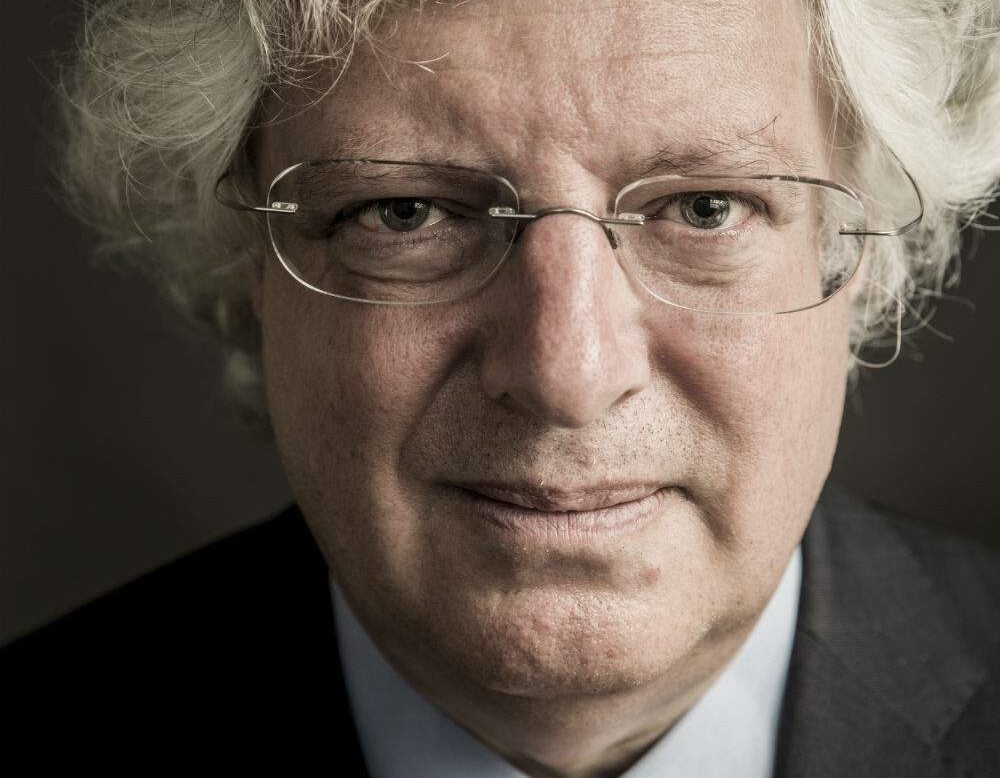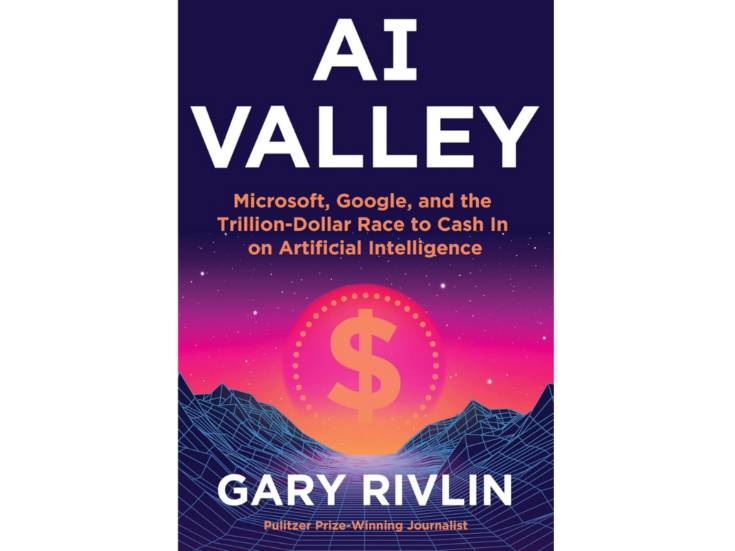
Terra Firma’s Guy Hands has gained and lost more money than almost anyone, but after 25 years his appetite for a big deal remains strong, writes Alec Marsh
When I meet Guy Hands he is in the middle of a deal. Just after we are introduced, his phone rings and he excuses himself. For the next ten minutes he paces back and forth on the far side of the quad of his alma mater, Mansfield College, Oxford, phone to ear, locked in a conspiratorial conference. Framed by handsome beds of lavender and a honeyed sandstone wall, his free hand sweeps back and forth like a conductor orchestrating unseen players. Suddenly he halts, fingers frozen in space, listening; before setting off again.
When Hands returns, the phone disappears into his pocket and he explains apologetically that it’s going to be one of those days. One, it would appear, of many: for here is a man who over 20 years has bought and sold businesses worth in the region of £100 billion in today’s money.

Copyright David Harrison
Some of these have been astonishing in their success (the acquisition and sale of Angel Trains ‘made an ROI in the hundreds of per cent, embarrassingly high’). And some have been catastrophic and career-defining, such as the £2.4 billion purchase of EMI in 2007. When the deal finally went pop in 2011, it is said to have lost him, his company Terra Firma and his backers a cool £1.7 billion. You could almost say it was the last record EMI ever made.
‘I’ve had ups and downs,’ reflects Hands, 58, now perched on the sofa in Mansfield’s chintzy Principal’s Lodgings. He’s slipped off his suit jacket and sits leaning forward over the coffee table – a purposeful posture that he seems rather at home with. I quickly suspect that this is the way he does a lot of business, but before I get to that I notice that his face is curiously expressive. Sooner or later, almost everything shows up there.
The private equity landscape has changed over time, Hands explains: it’s grown enormously, ‘far greater than the overall growth in the economy’, and the bigger players have ‘institutionalised’. ‘When I entered it was a much smaller industry, a more entrepreneurial industry. It had a lot of volatility. Today there’s less volatility, it’s more of an asset management industry.’
Hands looks down at the dainty teacup that he’s cradling between his fingers and I sense a note of sadness. Are the good old days over? ‘The gains are there if you are willing to take the risk,’ he asserts. ‘The smaller firms still have great deal-doers and you can still find the returns, but it’s increasingly rare.’ His tone veers towards the sanguine side of acceptance: ‘The reality is that you can make far more money in private equity by being a successful asset manager than you can by being a good deal-doer. That’s the lesson I’ve learnt over the last 20 years.’

Copyright David Harrison
And that’s why this self-confessed ‘classic entrepreneurial risk-taker’ has started to institutionalise Terra Firma, which he founded in 2002. Recent hires include Vivek Ahuja from Standard Chartered and Justin King, formerly CEO of Sainsbury’s. That’s what the big investors want, says Hands.
So what’s been his best deal? ‘The deal that we got more right than anybody else, was extraordinarily profitable and the market felt we had completely wrong was Angel Trains.’ That is one of three train-leasing companies formed in 1994 as part of rail privatisation, which was briefly owned by Nomura (where Hands headed the PE unit) before being bought by RBS in 1997. ‘If the balance sheet of Nomura had been bigger and we could have held it, we could have made about 30 times our money over a five-year period. As it happens we sold it to Royal Bank of Scotland after just over a year; we made 600 per cent. We did pretty well.’
At the heart of that acquisition was a simple strategic pivot: turning it from an engineering-focused concern to one more interested in customers. ‘It was a journey we managed to do in a very short period of time, partly [he doesn’t hide a smile] because at the first board meeting we fired the CEO and CFO. We did it very quickly and with total confidence because we absolutely knew we were right.’

Copyright David Harrison
Scratched RECORD
I turn to EMI. What’s it like to lose £1.7 billion? He looks down at the teacup momentarily. ‘It feels ghastly,’ he says, his paling face showing every penny of it. ‘It’s almost as close to a near death experience as one can have without dying, in terms of the mental anguish. The physical effects weren’t too good, but the mental effects were horrendous. It was ghastly, absolutely ghastly.’
The deal is reported to have left him personally $225 million worse off, and ultimately the furore around it forced him offshore. ‘A lot of people say that I ended up leaving the UK because the tax rate went up to 50 per cent.’ His tone betrays exasperation. The timings are all wrong, he insists: ‘The reason I moved to Guernsey largely was just about mental sanity and getting away from something which was really destroying me. Emotionally and physically I was just completely drained. The pressure of being in the hothouse that is the City of London – I couldn’t go into a restaurant without people coming up to me and talking to me about EMI. I couldn’t get into a taxi. It was just mind-blowing. And I got on that plane, left the United Kingdom, arrived in Guernsey and nobody gave a damn. It was wonderful.’
The relief is there in his voice too. Was he close to a breakdown? ‘It was actually more physical than mental,’ recalls Hands, who according to the Sunday Times Rich List is still worth a respectable £266 million. ‘It sounds silly but I was actually putting on a lot of weight. My diabetes was getting worse, I was not sleeping, and I was losing energy and getting depressed and lethargic.’ He concludes: ‘I wasn’t in a good place. If I’d stayed it would have got worse.’
In the end the debt was simply ‘too big a commitment’ for Citigroup to keep on its balance sheet (Citi received a $472 billion bailout from the US taxpayers in 2008). ‘The industry today is following almost exactly the model we had, which actually I find quite sad because the model should have moved on,’ he adds, firing me a mischievous smirk. ‘If we had the business today we would have made three to four times our money.’
Another deal that’s put Hands in the firing line is Terra Firma’s £1 billion purchase of the Four Seasons care home business in 2012. Hit by the squeeze in government spending, the business has seen its margins collapse. ‘We should have handed the keys back in 2014,’ Hands says, despair creeping into his voice.

Copyright David Harrison
Yet with a £15 billion portfolio, including brands such as Wyevale Garden Centres and Annington Homes, which owns some 40,000 properties mainly leased to the Ministry of Defence, Guernsey-based Terra Firma is a not inconsiderable beast in the jungle of British business. What does he make of UK plc?
‘The UK, from an entrepreneur’s point of view, has become a difficult place to do business,’ he says. ‘The government misreads the signals. It sees that our stock market goes up and presumes that’s because British business is strong, and actually it’s because we’ve got some businesses listed there who do their business abroad.’
The UK has ‘a topsy-turvy representation to government which is based on what Britain was in the Fifties, and that needs to be radically changed’, he says. ‘If you run a big bank in Britain you have a seat at the right hand of the chancellor… But if you are three and a half million entrepreneurs, small businessmen, your ability to get the chancellor to listen to what is happening to you is pretty well zero.’ As a result, ‘there is not a good understanding in government of what really goes on in business’ and ‘government makes decisions which have not really built our business base up’.

Copyright David Harrison
SCARE tactics
The government, he thinks, would do well to take a leaf out of Donald Trump’s book. ‘In certain areas he’s moving America forward. He’s hugely scary but you have to respect the fact that he is trying really hard to build American business back up.’ So Britain could do with 10 per cent of Trump? ‘I think we need a little bit of Trump. We need a little bit of May,’ he exhales. ‘We actually need a little bit of Corbyn, to be fair. We need politics to be much more pragmatic. We’ve managed to create a political system where people fight for one side or the other; they don’t fight for what’s right for Britain.’
A case in point is the EU referendum – ‘an absurdity, a Cameron folly of the highest order’ – which came about partly because of a disconnect between the rulers and the ruled. ‘I probably favour what most people would see as a soft Brexit,’ says Hands now. ‘It either has to be a soft Brexit or quite a hard Brexit; I think it’s quite difficult to do a moderate Brexit, actually.’
The EU departure relates to another trend that Hands has noticed. ‘The reality is Britain’s become a much more aggressive country,’ he declares. ‘It’s more about the fact that we have a country that is becoming more divided.’ And that division is economic: ‘It is becoming more unequal – particularly for the poor. It’s not so much that they are economically worse off, but their ability to move up, the educational opportunities are just much lower.’
Which brings us to Mansfield College. After our meeting, Hands and his wife Julia attend the official opening of the new Hands Building by Kofi Annan, the former UN secretary-general. Housing Mansfield’s new Bonavero Institute of Human Rights, as well as 73 student study-bedrooms, this follows two decades of Hands’ philanthropic support for Mansfield raising ‘access for excellency’. ‘Mansfield has 95.6 per cent [of students from] state schools,’ he says with pride. Oxford’s average is 60 per cent.
Why does it matter to him so much? As often seems to be the case with Hands, his response flirts with controversy: ‘My strongest view about why you want diversity… is so that all the successful people who are from nice successful family backgrounds actually understand there are other people out there, and what those other people’s life experiences are, and they get it.’
As a 19-year-old at Mansfield, Hands befriended a student from Glasgow, learning later that he had been convicted of a violent assault. ‘To realise there are nice people who have gone out in the past and done something quite horrendous, and yet they can go on and do good in society, was quite a shock,’ he recalls. But that’s the point: ‘If we don’t see other types of life we just are very narrow,’ he says, which is why many of the charities he and his wife support ‘are at the harder end’, covering alcohol and drug abuse, for instance.
‘It’s good to see that other side of life,’ declares Hands. ‘It makes you feel more alive. Just sitting in an office being successful and going to the golf course, eating in the Michelin-star restaurant, drinking a nice bottle of white burgundy… it’s fine, but it’s a small part of living.’
A friend of William Hague since university days (Hague was his best man), this former president of the Oxford University Conservative Association clearly cares deeply about the world we find ourselves in. I ask if he was tempted by a political career: Hands, now being photographed, looks over from the lens. ‘My wife told me when we got married that she would divorce me if I went into politics,’ he states. ‘She was very, very insistent and after 34 years of marriage hasn’t changed her mind.’ Would he have liked to? ‘Yes,’ he replies. ‘But I wouldn’t have been any good.’ He chuckles.
Picture credit – Guy Hands (copyright David Harrison).
Related
‘Lazy’ Lehman coverage unhelpful as wealth managers prepare for ‘2020 recession’
Bull market ‘nears end’ as wealth managers talk Trump, bears and recession
HNWs and crypto investment: closer than you think?







